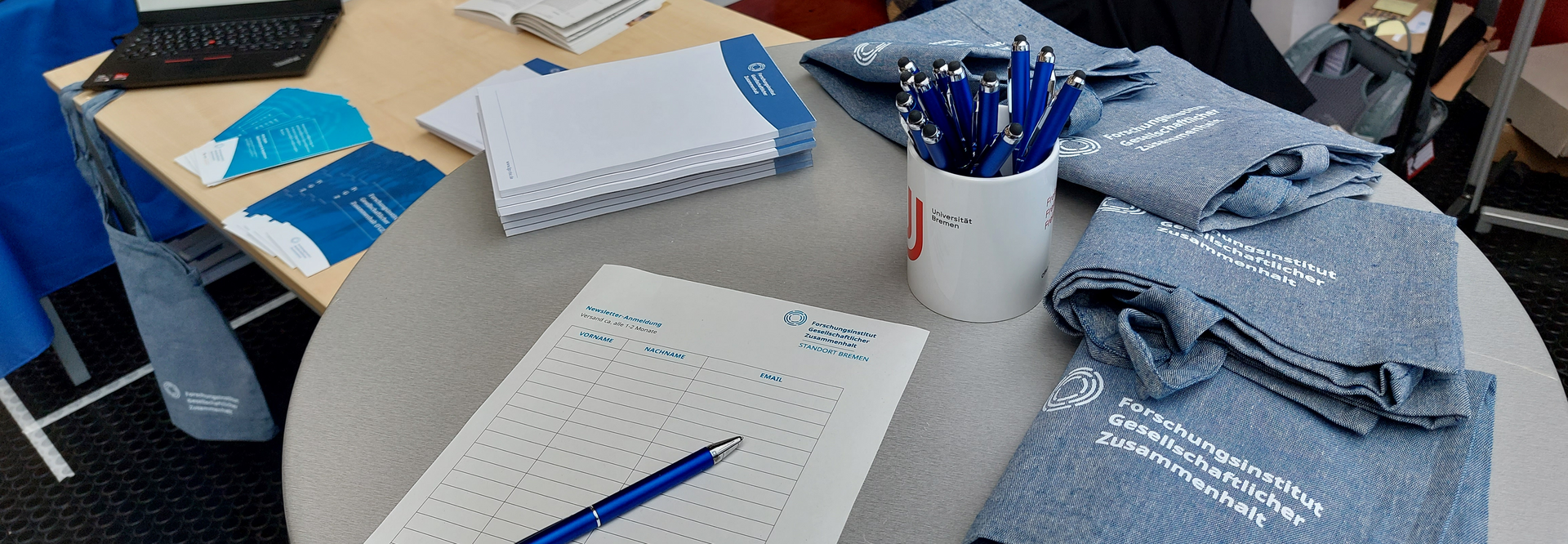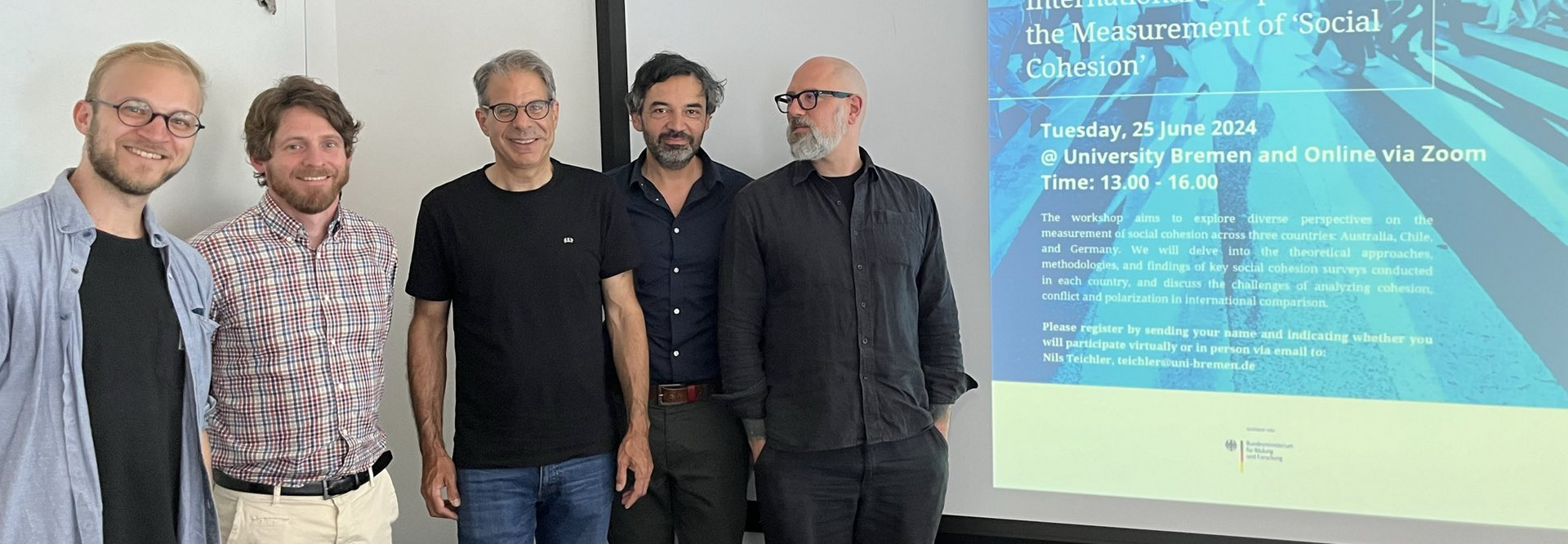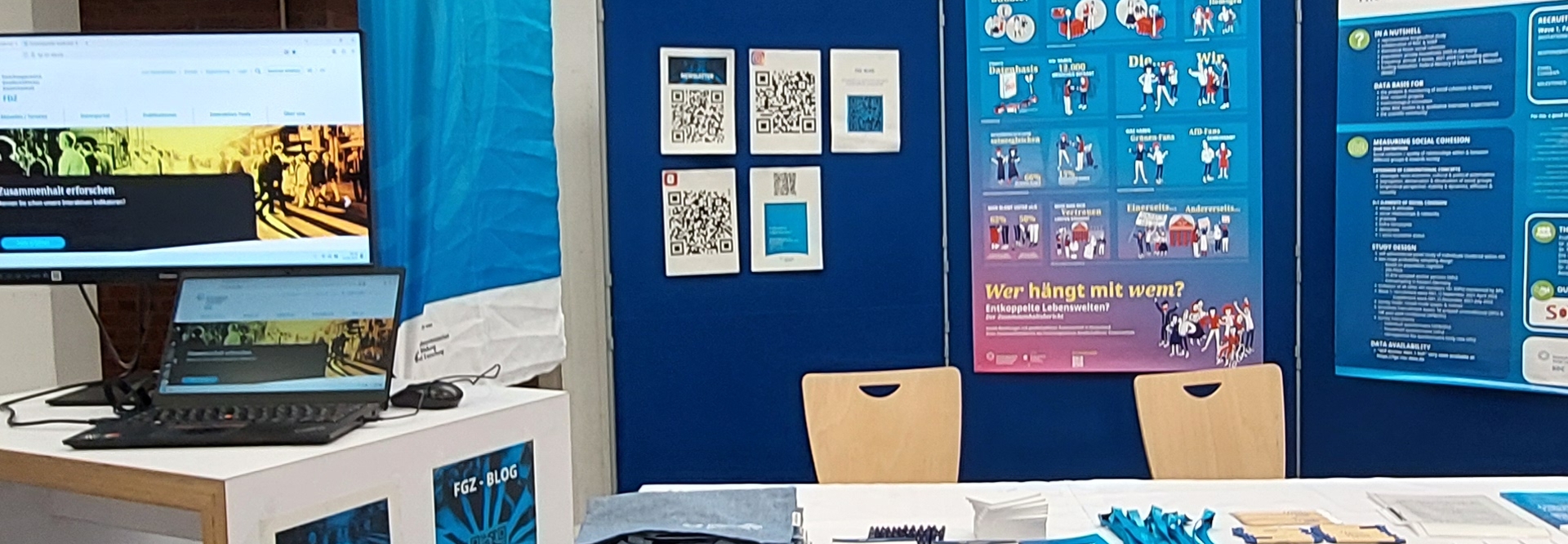RISC Data Portal
The Research Data Center is a central office of the RISC, which is located at the University of Bremen. The RDC-RISC is advised by the internal steering Data Committee, has been provisionally accredited by the German Data Forum (RatSWD) and is a member of the standing committee Research Data Infrastructure (FDI Committee). The central task of the Research Data Center is the development of a data infrastructure for the analysis of social cohesion, which is reflected in the following functions:
Data Production and Data Management
- Coordination of the longitudinal study German Social Cohesion Panel
- Advice for RISC projects collecting data
- Archiving of all quantitative RISC data
- Cooperation with Qualiservice for archiving qualitative RISC data
- Development of a data management concept
Monitoring
- Development of an indicator system for recording social cohesion
- Data analysis and regular reporting
Data Portal
- Documentation of all data collected in the RDC-RISC (RISC metadata database)
- Dissemination of the quantitative data collected in the RDC-RISC
- Provision of central indicators of social cohesion
- Documentation of all scientific publications pre-published with RISC data (RISCdatalit)







